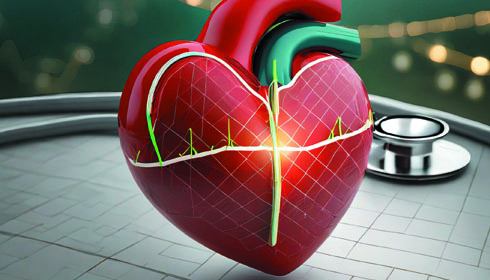
Melbourne scientists unveil potentially novel treatment for organ damage triggered by High BP
A startling discovery by Monash University and the Baker Heart and Diabetes Institute gives those with organ damage caused by hypertension fresh hope. The study demonstrated the therapeutic potential of a novel therapy known as "compound 17b" (Cmpd17b) and was partially funded by the National Heart Foundation of Australia, the Australian Medical Research Future Fund, the NHMRC Ideas grants, and the Victorian Government of Australia's Operational Infrastructure Support Programme.
Known by most as high blood pressure, hypertension is a prevalent condition that can seriously harm the heart, kidneys, and blood vessels, where mostly the current therapies are insufficient to correct these anomalies, leaving patients with side effects like enlarged hearts and weakened blood vessels. Improving outcomes and reducing risks require addressing the underlying inflammation.
Researchers at the Baker Heart Institute and Monash Institute of Pharmaceutical Sciences have studied whether Cmpd17b, a small-molecule pro-resolving activator known to prevent heart attacks, could also shield against end-organ damage caused by hypertension. They have shown that this molecule can activate the formyl peptide receptor family, which is vital for controlling inflammation, thus mitigating the adverse effects of hypertension in both animal models and human subjects.
Commenting on the findings, MIPS PhD candidate Jaideep Singh, co-first author of the study pointed out that organ destruction is one pathogenic feature of hypertension, a major source of morbidity and mortality and said, "However, the current anti-hypertension medications have limited ability to treat end-organ damage resulting from hypertension. Our study has for the first time shown that Cmpd17b may be helpful in clinical settings since it can not only normalise the anatomy and function of the heart and blood vessels in hypertensive mice but also clearly correlate with human hypertension."
The study's principal author, Professor Geoff Head AM, Head of the Neuropharmacology Laboratory at the Baker Institute, emphasized the significance of the results. "FPRs act as bodyguards, reducing inflammation, a primary contributor to high blood pressure." Professor Head is excited to discover that Cmpd17b, which triggers these FPRs, may be a way to stop and reverse the long-term damage high blood pressure does to our organs.
Corresponding author Dr. Chengxue Helena Qin, leader of the MIPS lab and National Heart Foundation Future Fellow, observed notable modifications in the proteins and pathways in the hearts and blood vessels of mice with high blood pressure. "We found that Cmpd17b, a new kind of treatment, can improve heart and blood vessel health and reverse some of these changes." Dr. Qin added, "This implies that comparable therapies may also be effective for those with high blood pressure."
Dr. Qin emphasized the possibility of combining Cmpd17b with current medications. "Medications such as Cmpd17b may be a viable new approach to treating high blood pressure issues, possibly repairing damage to vital organs like the heart and blood vessels. Controlling cardiovascular problems linked to hypertension may be achieved even better by combining Cmpd17b with current treatments."
With its ground-breaking findings, the fight against organ damage caused by hypertension has advanced significantly, and patients all around the world can now expect better care and outcomes.